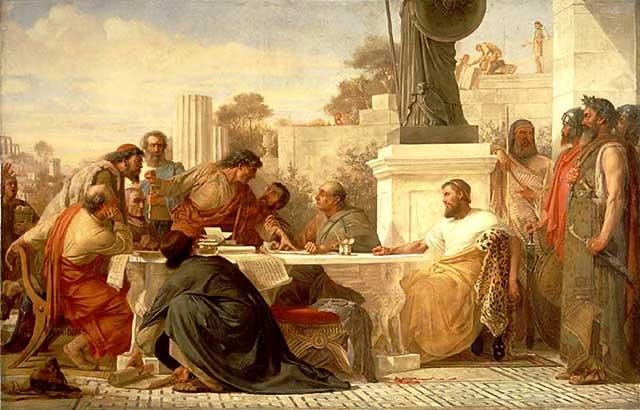In the autumn of his final sojourn in Antioch, where his army was to garrison for the winter before what would prove to be his disastrous campaign into Persia, the Emperor Julian (that is, the ‘Apostate’) visited the sacred spring of the grove of Daphne—site of the great temples of Apollo and Artemis—in the hope of obtaining an oracle. None was forthcoming. The god would not speak. Julian asked the priest of the spring why this was so, to which the latter responded that all oracles had been silenced by the proximity of mouldering human remains, which had defiled this holy place; until the pollution had been removed and the ground purified again, no god would deign to visit the grove, much less speak to those seeking divine counsel. On further inquiry, Julian learned that when Gallus had governed the city and its environs the Christians of Antioch had successfully petitioned to have the body of St. Babylas transported from its martyrium and interred in the grove in order to sanctify the grounds. Nothing could have more violently outraged the feelings of pious pagans. No desecration could have been more abominable than an encroachment on the temenos of a god by the uncleanness of mortal decay. Julian immediately issued an edict requiring the removal of this ‘corpse’ from the vicinity of the houses of the gods and its return to its original resting place in the city. The Christians complied, but defiantly. On the day the bones of were removed, the faithful bore them back to Antioch in a large funeral cortege, loudly singing militant hymns about the overthrow of idolatry and of the worship of demons. It was one of many galling provocations that Julian suffered during those long months, from Christians and pagans alike, and he vowed that on his return from the east he would make the city rue its effrontery. He never returned, though. And, even before his departure for Persia, the Apolloneion of Daphne, along with its magnificent colossus of the god by the sculptor Bryaxis, was burned down as a result of (so it seems) being struck by lightning; and in the years following Julian’s death the worship of the old gods died away relatively rapidly.
Keep reading with a 7-day free trial
Subscribe to Leaves in the Wind to keep reading this post and get 7 days of free access to the full post archives.




